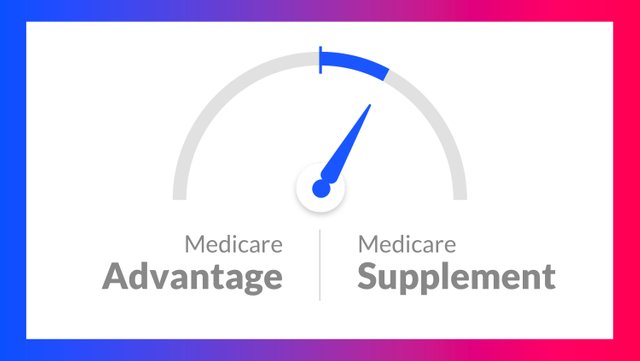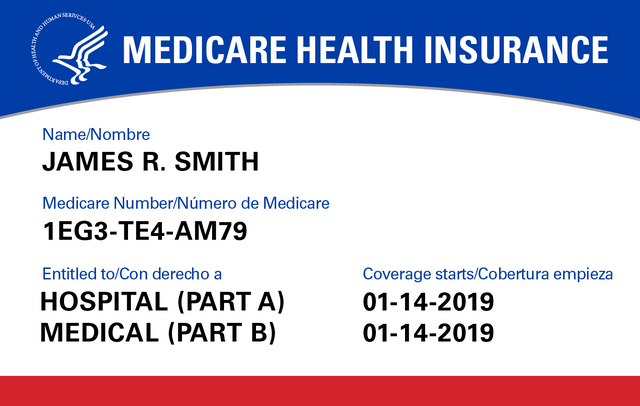When you first becomes eligible for Medicare, you can either choose Original Medicare or Medicare Advantage.
If you choose Original Medicare, you may go with a Medicare Supplement Plan (Medigap) to help fill in the gaps in Medicare Part A and Part B coverage.

Medicare Supplement Plans have been part of Medicare's history since 1992. As with most things involving Medicare, changes occurred over the years. There have been plans that were eliminated, as well as new plans introduced. Compared to the much newer Medicare Advantage Plans, Medicare Supplement Plans do tend to have higher premiums, but a person’s costs may be lower than a Medicare Advantage Plan over time. Most Medicare Beneficiaries are willing to accept a higher premium once they know that their Medigap policy will pay most, if not all, of their out-of-pocket expenses.
Another popular feature of a Medicare Supplement Plan is that you may go to any provider or facility in the country who accepts Medicare assignment.
Once you enroll in Medicare Part B (medical insurance), you’ll have a one-time enrollment window to buy a Medicare Supplement Policy. This window is known as the Medigap Open Enrollment Period, OEP for short. This window lasts for 6 months, beginning on the first day of the month in which a person turns both 65 or older and is enrolled in Medicare Part B. For example, if you turn 65 on July 14, and are enrolled in Medicare Part B, you’ll have until Dec. 31 to enroll in a Medigap plan.
When you apply within your Medigap OEP, your acceptance into the plan is guaranteed. Plans can’t charge more if you have a pre-existing health condition. To purchase a Medigap Plan, you must be enrolled in both Medicare Parts A and Part B. Once you’re outside your Medigap OEP, you may need to pass medical underwriting. An insurer can review your medical history and refuse to sell you a policy, or sell you a policy at a much higher cost, if you do not meet their full underwriting requirements.
Sometimes you may be able to join a Medigap Plan outside of your open enrollment window and not be subject to medical underwriting. For example, if you’re enrolled in a Medicare Advantage Plan and the plan leaves the Medicare Program, you have a “guaranteed-issue right” to apply for a Medigap Plan. If you will be losing a Medicare Advantage Plan because you are moving out of your plan’s service area, you will also have a guaranteed-issue right to a Medicare Supplement Policy without being subject to medical underwriting.
You may also qualify for a guaranteed-issue right if you joined a Medicare Advantage Plan during your Medicare OEP and wish to return to Original Medicare during the first 12 months. Losing employer group health coverage is another common situation when you have guaranteed-issue rights.
What happens when you’re Medigap OEP has passed and you don’t qualify for a guaranteed issue right? That’s when medical underwriting comes into play. Medical underwriting is a process in which an insurer collects detailed information about your health and medical history. Based on this information, an insurer can decide whether or not to approve your application and / or determine the cost of the policy. It stands to reason that people with a history of medical problems will pay more for insurance than people with no such history, or the insurer can deny coverage altogether. Some insurers may impose a waiting period if the applicant has a pre-existing condition and if state law allows it.
Insurers can ask questions about your pre-existing medical conditions, medications, height and weight, hospitalization, nursing facility use, planned medical procedures, and much more. Insurance underwriters may call applicants to verify or clarify their responses. Every insurer has their own underwriting guidelines. Some are more restrictive than others.
Most of the time, insurers will not consider minor things like seasonal allergies or the flu. Typically, an insurer will not exclude someone if they take maintenance medications for high blood pressure or cholesterol. You will need to report any prescription medications you have taken over the last two to five years.
Insurers will not offer a Medigap Policy to someone who is morbidly obese or seriously underweight. Insurers have “build charts” that show acceptable weight ranges for various heights, and by gender. If you plan to have surgery soon, you should probably get it done before you apply for a Medigap Plan. When it comes to potentially disqualifying situations, expensive surgeries and procedures are red flags. Rarely will an insurer approve coverage for someone having major surgery. So, you should have the procedure done, including any follow-up visits or therapy before you complete an application for Medigap coverage. Generally, the more chronic conditions you have, the greater chance you will be turned down for a policy. Again, underwriting guidelines are different for every insurer. An experienced Insurance Broker can effectively help the initial underwriting screening process.
If you wish to change Medicare Supplement Plans to save on costs or get better coverage, and you're outside of your open enrollment window and you are not entitled to any guaranteed-issue right, you will have to go through medical underwriting. Some illnesses are treatable but incurable. This commonly includes dementia, chronic lung disorders, and various immune disorders like rheumatoid arthritis, lupus, or multiple sclerosis, just to name a few.
Unfortunately, many insurers will exclude you from coverage. A person that has diabetes may stand a better chance of being approved when they take just a few oral medications or use less than 50 units of insulin daily.
Here are some tips.
•Allow yourself plenty of time to complete the health questionnaire.
•Answer all questions truthfully, but don’t volunteer any additional information unless the underwriter asks you.
•Use yes and no answers to questions whenever possible.
•Don’t cancel your current coverage, if any, until a determination is made on your application.
It’s worth mentioning here that the open enrollment period in the fall for Medicare Advantage and Part D Plans (October 15th - December 7th) does not apply to Medicare Supplement Plans. The fall open enrollment period is not the time when you can apply for a new Medigap carrier and skip the health questions. If you can’t pass underwriting, you have to make a choice. You can keep your existing policy or consider the Medicare Advantage alternative, which has no health questions.
Lior Sela, CEO of Carolina Advisors Group, has over 15 years experience with Medicare.
If you have additional Medicare questions, please call him: 843-602-9584 or Email him: [email protected]
